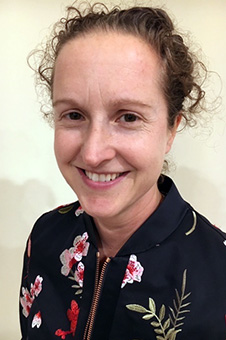Placing physically and sexually aggressive older psychiatric patients in general hospital wards is both unsafe and unethical, a University of Otago – Ōtākou Whakaihu Waka-led paper argues.
The authors are urgently calling for more inpatient beds for patients with the behavioural and psychological symptoms of dementia (BPSD) to deal with the growing issue.

Dr Cindy Towns
Lead author Dr Cindy Towns, of the Department of Medicine, Wellington, says a lack of psychogeriatric beds means the health system is pressuring medical wards to admit and manage psychiatric presentations in older adults.
"This practice is unsafe and has resulted, and will continue to result, in numerous assaults on staff and undue risk to medical patients," she says.
The paper, published in Internal Medicine Journal, outlines how five out of six patients with dementia will develop BPSD. The condition can result in hallucinations, delusions, sleep disturbance, inappropriate sexual behaviour and aggression.
BPSD patients go to hospital when their behaviour becomes unmanageable but there is no underlying medical cause, such as infection, to treat. The presentation is purely psychiatric.
"They need specialist facilities and care but despite inappropriate design and no resourcing, hospitals routinely expect medical wards to accept these patients even when the presentation is complicated by physical or sexual violence," Dr Towns says.
First-line treatment is based on providing an appropriate environment. This involves making patients feel safe, limiting light and noise, prioritising privacy and personal space, and having appropriate security to protect others.
"Not only do medical wards not have the capacity to manage mental health presentations, it is impossible for them to adhere to these basic standards. New Zealand hospitals have yet to follow single occupancy design and aren't designed to manage agitated or aggressive patients.
"Admitting BPSD patients to unresourced medical wards not only breaches the rights of psychiatric patients, it compromises the rights of medical patients. It also places an unjust medico-legal burden on physicians."
New Zealand has just 16 in-patient psychogeriatric beds per 100,000 older people which is below the recommended minimum.
"Due to population growth, bed numbers have actually declined since 2017, and the situation is only going to get worse as the population ages. There are currently 70,000 New Zealanders who have dementia but by 2050 this will be 170,000," Dr Towns says.
By comparison, Australia proposed risk stratification more than 20 years ago whereby severe BPSD patients would be managed in secure units with dedicated security and specialist psychiatrists. This model is used in policies throughout Australia whereas in New Zealand, severe BPSD is defaulted to medical wards even when patients are presenting solely due to extreme violence.
"Change in care in New Zealand relies on health leaders and funders caring about the safety risks, rights breaches and basic standards of care."
Association of Salaried Medical Specialists Director of Policy & Research, Harriet Wild, says decades of underinvestment in health infrastructure, combined with prevalence of dementia in a growing population of older adults in Aotearoa "creates a perfect storm".
"This increased risk of harm has serious and very real consequences for the health and safety of other patients, health workers, and people with dementia themselves.
"Growing the number of specialist psychogeriatric beds nationally - and staffing them safely, with psychiatrists and mental health nurses - must be a priority," she says.
While waiting for more inpatient psychogeriatric beds, Dr Towns believes temporary accommodation, with the appropriate security requirements, needs to be found.
"Psychiatric presentations - especially when severe - need to be admitted under the specialist care of a psychiatrist in wards that can safely and appropriately manage their care."






